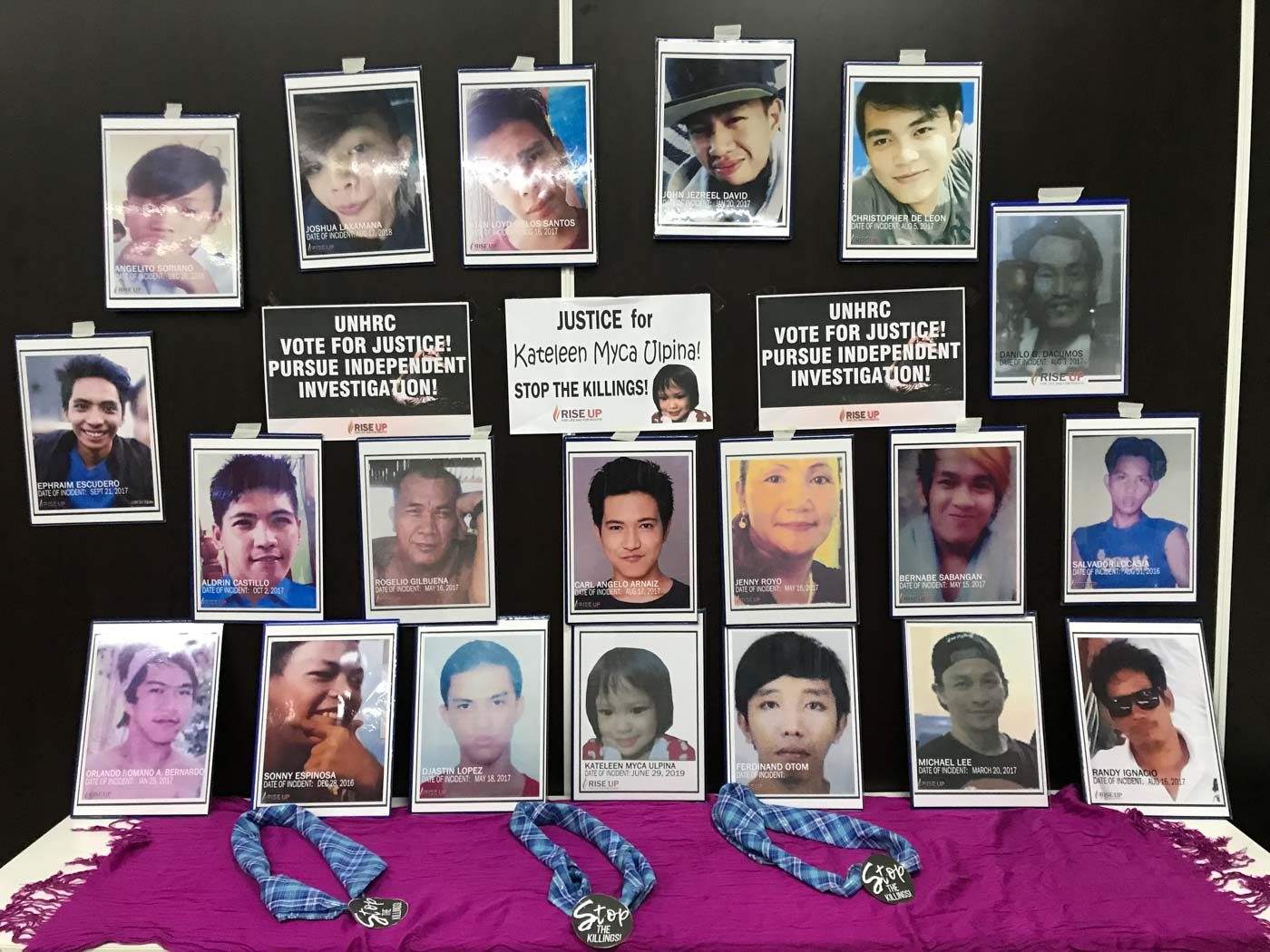SUMMARY
This is AI generated summarization, which may have errors. For context, always refer to the full article.

MANILA, Philippines – The Department of the Interior and Local Government soft-launched its Anti-Illegal Drugs Information System (AIDIS), which aims to consolidate all government data, but excludes figures of deaths in anti-drug operations.
The agency will leave this figure to the Philippine Drug Enforcement Agency (PDEA), which counted 5,526 deaths in the drug war as of June 30, 2019 – a much smaller number than the to 27,000 estimated by human rights groups.
The AIDIS instead contains graphs, charts, and other visual representations on other aspects of the anti-drug campaign, in the form of 6 dashboards: drug affectation, juvenile, offenders, operations, rehabilitation, and surrenderers.
AIDIS Director Loida Linson said that the figures of the killings could be included in the second phase of the system, because it is still a work in progress.
This system will not be made available to the public, but only to authorized users, among them government agencies such as the Philippine Communications Operations Office (PCOO), Department of Foreign Affairs, Department of Health, Philippine National Police, and PDEA.
“This is one way where we can strengthen convergence amongst agencies, and centralizing all information and hopefully through that we could get better information for policy making,” said DILG Undersecretary Ricojudge Echiverri.
Addressing disinformation
The consolidated data aims to address disinformation given to the international community, said Echiverri. (READ: PH gov’t to counter ‘false’ narrative on drug war)
“There’s so many data which were brought to the international community which are baseless. Kasi ‘pag tinatanong mo ano’ng basis, di ba hindi nila masabi? (Because if you ask what’s their basis, they can’t answer, right?)” he claimed.
He cited an instance when Vice President Leni Robredo mentioned 7,000 extrajudicial killings, and questioned her basis for that figure. He said perhaps the AIDIS will allow Robredo to see the truth for herself, now that she had accepted the offer to co-chair the Inter-Agency Committee on Anti-Illegal Drugs.
Echiverri also said this consolidated data could also be communicated to the United Nations. In July, the United Nations Human Rights Council adopted a resolution to come up with a report on the situation in the country, following the spate of killings made under President Rodrigo Duterte’s war on drugs.
Thus, he said that AIDIS will allow correct and accurate information to be disseminated to the public, but the data will only be given to and released by the PCOO’s Real Numbers program. – Rappler.com
Add a comment
How does this make you feel?
There are no comments yet. Add your comment to start the conversation.